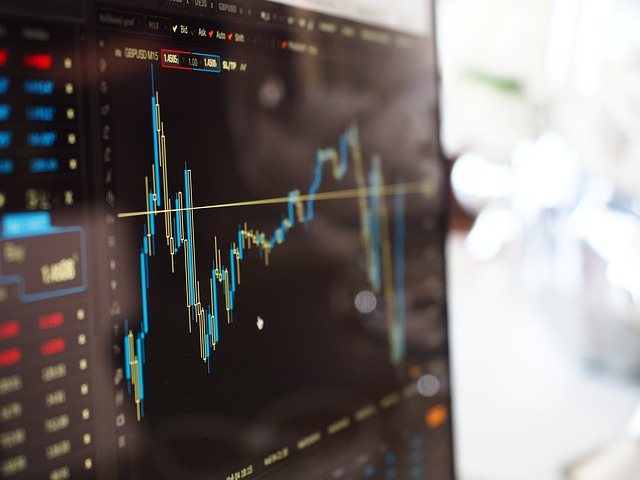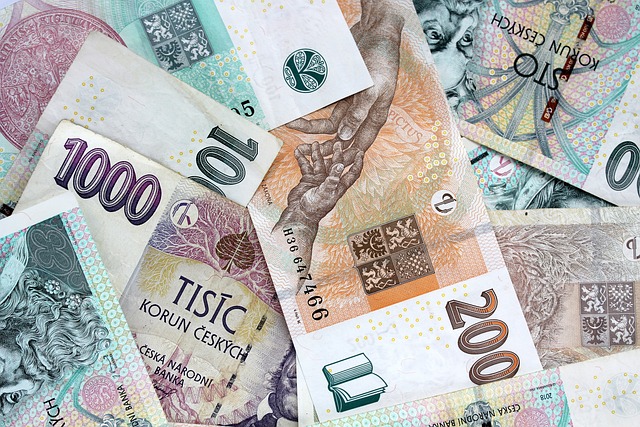Trading forex can be a great way to make money, but knowing how much money you need to get started is essential. Many people are overwhelmed with the amount of information available when it comes to trading forex and wonder how much they need to invest in order to get started.
In this article, we’ll explore the various ways you can calculate how much money you need to trade forex. We’ll look at different scenarios and consider some tips on getting started. By the end of this article, you should have everything you need to know about how much money is required for trading forex.
Calculating Leverage And Margin Requirements
 Trading forex requires investors to calculate their leverage and margin requirements before they open a position. Leverage is the ratio of the investor’s capital to the amount of funds borrowed from a broker. Margin is the minimum amount of money an investor needs to open and maintain a trade. Generally, most brokers require at least 2% margin for major currency pairs such as EUR/USD. This means that if an investor wants to open a trade with a size of 100,000 units, they will need to deposit $2,000 into their trading account in order to meet this margin requirement.
Trading forex requires investors to calculate their leverage and margin requirements before they open a position. Leverage is the ratio of the investor’s capital to the amount of funds borrowed from a broker. Margin is the minimum amount of money an investor needs to open and maintain a trade. Generally, most brokers require at least 2% margin for major currency pairs such as EUR/USD. This means that if an investor wants to open a trade with a size of 100,000 units, they will need to deposit $2,000 into their trading account in order to meet this margin requirement.
The amount of money an investor needs to start trading forex will depend on several factors including how much leverage they want and which currencies they plan on trading. It’s important for investors to understand these concepts and how it will affect their trades before entering the market. Investors should also consider other factors like fees and commissions when calculating how much money they need to start trading forex successfully.
Deciding On A Trading Strategy
Before deciding on a trading strategy, you need to determine how much money you’re willing to invest in forex trading. This will depend on your financial situation and the amount of risk you’re comfortable taking. Make sure that the amount of money you invest is an amount you can afford to lose without impacting your financial security or lifestyle. It’s also important to assess how much time and effort you can dedicate to forex trading – this will help you decide which type of strategy is right for you.
If you’re new to forex trading, it may be wise to start with a simple strategy before moving onto more complex ones. Simple strategies tend to involve less risk and require less analysis of the markets. They can also provide a great way to learn about the basics of forex trading before committing more capital or energy towards more advanced strategies. Whatever strategy you choose, make sure it’s one that suits your financial situation, risk tolerance, and investment goals.
Understanding The Risks Of Trading Forex
When deciding on a trading strategy, it is essential to consider the potential risks associated with forex trading. Before investing any money, it is important to understand how much capital is required to set up an account and start trading. Depending on the broker and the type of account that you open, the amount of capital needed can vary.
Generally, most brokers require a minimum deposit between $100 and $250 in order to open an account. However, some brokers may require more money depending on the type of account or services they offer. Furthermore, traders should also factor in additional costs such as commissions and spreads when calculating their overall trading costs. It’s also important to note that there are risks associated with forex trading even if you have sufficient capital available to trade with. Therefore, understanding these risks before entering into trades is vital for any successful trader.
Making Sure You Have Enough Capital
It’s no secret that trading forex can be a lucrative opportunity. But before you dive into the world of currency markets, it’s essential to make sure you have enough capital to start your journey. After all, having enough money is the most important part of any successful trading venture.
So how much money do you need to trade forex? Generally speaking, you should never risk more than 1-2% of your total capital on any single trade. That means if you have $10,000 in your trading account, then you shouldn’t be risking more than $100-$200 per trade. That said, some traders may opt for larger positions when they are confident in their strategy and the underlying market conditions. Ultimately, it’s up to each trader to decide what level of risk they are comfortable with taking on and what amount of capital they have available to trade with.
Determining Your Risk Tolerance
Before you can determine how much money you need to trade forex, it’s important to assess your risk tolerance. Risk tolerance is the maximum amount of capital you’re willing to lose when trading. Understanding your risk tolerance can help you decide how much capital is necessary to trade with confidence and minimize losses.
To determine your risk tolerance, consider factors like your financial condition, investment objectives, and experience in foreign exchange markets. Additionally, calculate how much you could afford to lose without jeopardizing other financial goals. Once you’ve taken all these factors into account, you can decide what percentage of your available funds should be used for trading forex. This will give you a better idea of the amount of capital needed to start trading.
By understanding your risk tolerance and having enough capital on hand for trading, you’ll be in a better position to succeed in the forex market.
What Type Of Account Should I Open To Trade Forex?
When trading forex, the type of account you should open depends on your experience level and investment objectives. Beginner traders may want to open a standard account, which requires a minimum deposit of $500 and allows for smaller trade sizes. Experienced traders may want to open a mini account, which requires a minimum deposit of $250 and allows for smaller trade sizes than a standard account. For more experienced traders looking for higher leverage, an ECN or STP account could be the right option, although these accounts generally require larger deposits. Finally, those who are looking to invest large sums of money should consider opening a VIP or premium account.
What Type Of Broker Should I Use For Forex Trading?
When it comes to trading forex, it’s important to choose a broker that is reliable and trustworthy. There are a lot of options available, including online brokers and full-service firms, so it’s important to do your research before choosing one. Consider factors like fees, customer service, and the range of currency pairs they offer. It’s also a good idea to look into the broker’s reputation and read reviews from other traders who have used them. Ultimately, you want to choose a broker that is reputable and provides the services you need for successful trading.
Are There Any Tax Implications For Trading Forex?
Yes, there are tax implications for trading forex. The tax implications will vary depending on your individual circumstances, including the size of your trading account and the type of trades you make. It is important to understand what taxes you may be liable for and take steps to ensure you comply with the relevant rules. Depending on where you are trading from, it may be necessary to report your forex profits or losses to the relevant authorities in your country.
What Type Of Education Or Training Do I Need To Successfully Trade Forex?
Successfully trading forex requires a specific set of skills and knowledge. You’ll need to understand how forex markets work, including the different types of orders, risk management principles, and technical analysis. It’s also important to develop a trading strategy, so you know what signals you’re looking for and when to enter or exit a position. Investing in an online course or attending webinars is a great way to learn about forex markets and build your trading skills. Alternatively, you can try out free demo accounts with virtual money to get hands-on experience before investing real money in the market.
How Often Should I Trade Forex?
Trading forex is a great way to make money, but there’s no one-size-fits-all answer to how often you should trade. It depends on your goals and risk tolerance. If you’re looking to make a quick buck, then day trading may be right for you. If you want to take a more long-term approach, then swing trading or position trading may be better suited for you. Ultimately, it’s important to find the approach that works best for you and your financial situation.
In conclusion, trading forex can be a great way to make money, but it’s important to go in with a plan. You need to start by researching the type of account that suits your needs, as well as the broker you use and any tax implications. Knowing what type of education or training you need is also essential for successful trading. Finally, decide how often you want to trade – it could be once or twice a week or even more often. With these tips in mind, you’re ready to get started and make money in the forex market.








